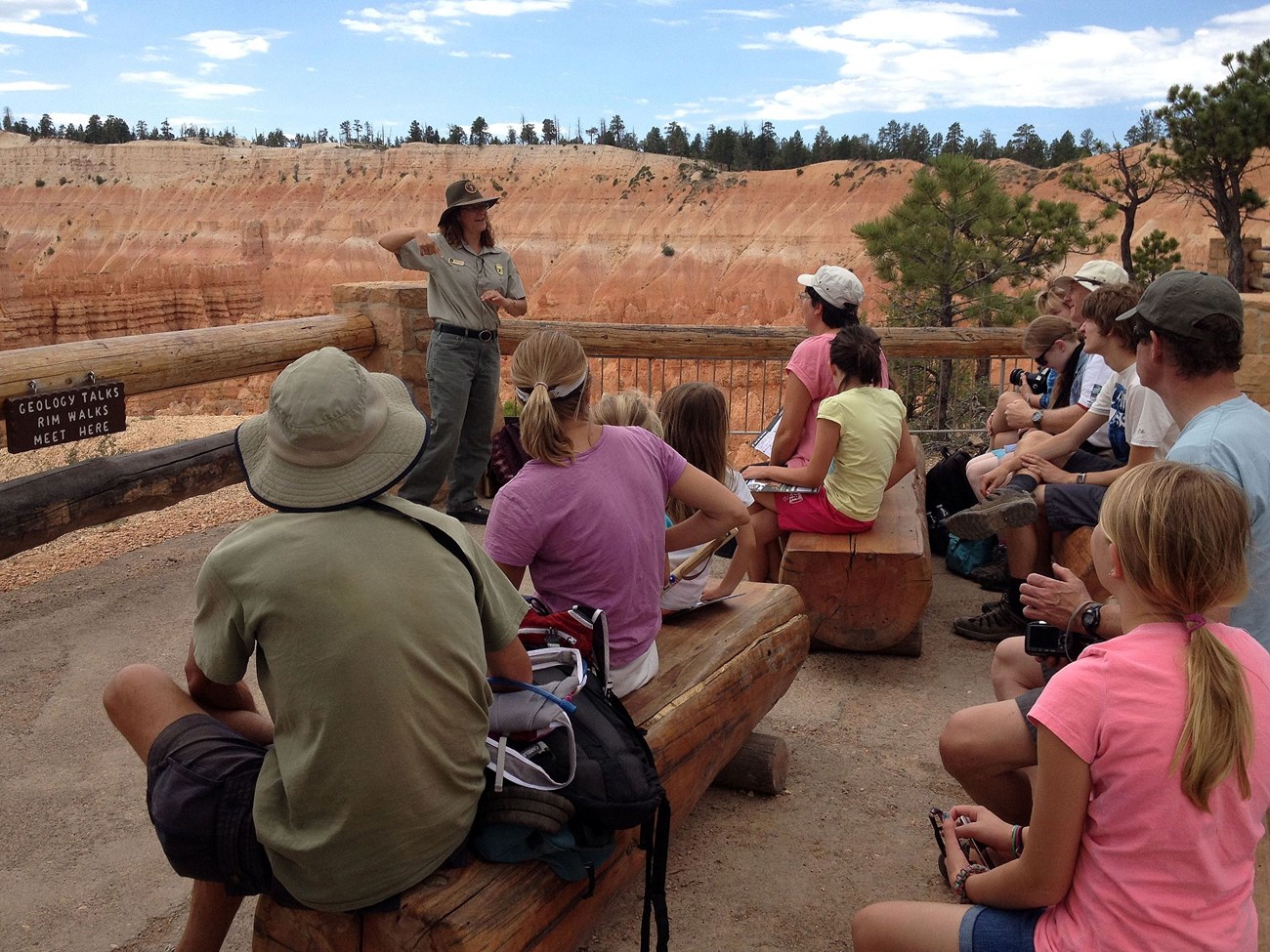Part of a series of articles titled Values Embodied in Geoheritage.
Previous: Economic Value
Next: Recreational Value
Article

NPS photo.
Earth scientists and students explore, observe, record, analyze, and draw reasoned conclusions about the features and processes they encounter in nature. Our nation’s geologic heritage sites are exceptional settings for field work and education because they often are the best or only places to view a particular feature or process. The ability to examine geologic features in a functioning context with other natural processes is another tremendous benefit. Educational programs can use clearly observable examples from geologic heritage sites to help explain complex subjects such as ancient climate and environmental conditions, the history of life, or the formation of energy resources. Geologic heritage lessons are provided by educators in many formal (classrooms and lectures) and informal (park visitor centers and museums) settings.
Part of a series of articles titled Values Embodied in Geoheritage.
Previous: Economic Value
Next: Recreational Value
Last updated: December 22, 2020